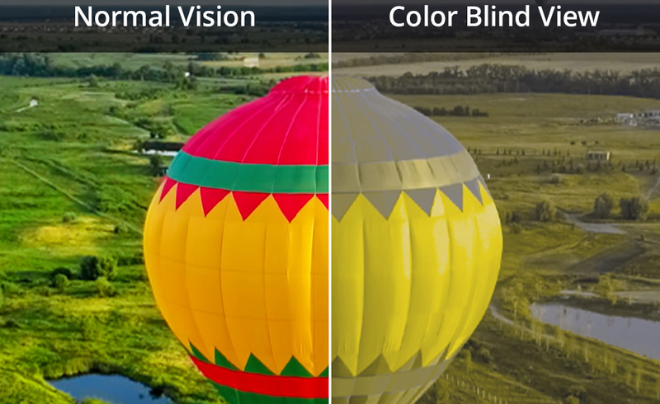UIW Study Finds Special Glasses Improve Color Vision for Color Blind
Study Published in Nature Journal “Eye” Reveals Stimulation of Color Vision Functions in Cerebral Cortex and Neural Adaptivity
 The University of the Incarnate Word Rosenberg School of Optometry (UIWRSO) is proud to announce the publication of a groundbreaking new study that found special EnChroma glasses, engineered with technically advanced spectral notch filters, enhance color vision for those with the most common types of color vision deficiency. Test subjects with color blindness experienced immediate improvement, which persisted long-term even after subjects stopped wearing the glasses.
The University of the Incarnate Word Rosenberg School of Optometry (UIWRSO) is proud to announce the publication of a groundbreaking new study that found special EnChroma glasses, engineered with technically advanced spectral notch filters, enhance color vision for those with the most common types of color vision deficiency. Test subjects with color blindness experienced immediate improvement, which persisted long-term even after subjects stopped wearing the glasses.
Normal color vision, predicated on three cones sensitive to red, green and blue light, is essential for critical color discrimination in multiple occupations and for learning in school. Yet, 8% of males and 0.5% of females have hereditary color vision deficiency; an estimated 13 million in the U.S. and 350 million globally.
In the study, 13 color blind subjects were given the special color-correcting lenses developed by EnChroma and wore them daily for 11 to 14 days. Cone contrast sensitivity and color naming were then assessed by presenting the subjects colored letters visible only to the red, green or blue cones. With the glasses, subjects showed immediate improvement. After 12 days, improved color vision was sustained even without wearing the glasses.
Most significantly, building upon prior research, the study found immediate and long-term improvement in color threshold (lowest color contrast detectable) as well as measures above threshold (readily visible to the color blind), including color naming and visual brainwaves (VEPs) with the stimulus visible only to red, green or blue sensitive cones. Selective (cone-specific) immediate and long-term improvement of VEPs with EnChroma lenses suggest they enable stimulation of the brain areas critical for color vision. Since the color blind cannot properly receive signals from specific color cones, the results indicate that EnChroma glasses activate the neural mechanisms required to better see colors and improve and expand color vision for those with red-green color vision deficiencies.
“Our results indicate that EnChroma lenses can improve color vision and quality of life in some individuals with color vision deficiency,” says Dr. Jeff Rabin, professor and assistant dean for Graduate Studies, Research and Assessment at UIWRSO. “For example, a 66-year-old male with severe protanomalous (red cone) deficiency was overjoyed to better see tomatoes in his garden, a complete rainbow, as well as car colors (particularly reds and blues) which “pop-out” when he drives. At a recent six-month visit, a three- to five-time improvement in daytime and outdoor color vision was recorded. We look forward to continuing this exciting research.”
People with standard color vision see over 1 million hues and shades while the red-green color blind only see about 10% of them. To those with color vision deficiency, colors appear muted and confusing at times, and some colors are difficult to differentiate.
The study was conducted by Dr. Jeff Rabin, Frances Silva, Natalie Trevino, Harper Gillentine, Liqing Li, Loary Inclan, Gary Anderson, Erica Lee and Harrison Vo.

